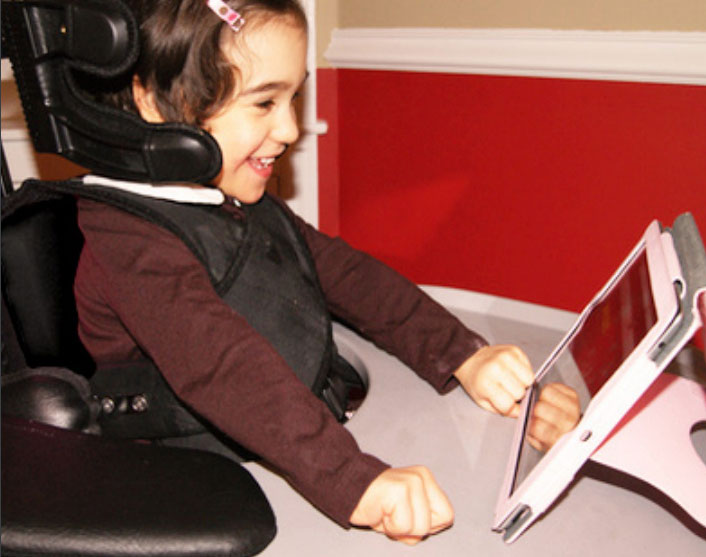Specialized items and services are called Assistive Technology
We all have our favorite gadgets, electronic equipment, appliances and tools that make everyday tasks easier. People with disabilities may need modified versions of these gadgets (or other equipment) that is specialized to help improve their quality of life and increase their independence. Generally, these technologies help with:
- Speaking and hearing
- Learning
- Moving
- Self-care
- Household chores
- Work activities

Some organizations can help pay for assistive technology
You may be able to get funding for assistive technology items and services. The funding source depends on need of the person and how the technology will be used. Options include:
- Medicaid/Medicare
- Independent Living Centers
- Vocational Rehabilitation
- Special Education
- Private Insurance
- Employers
- Low-Interest Loans (specifically meant for AT)
Getting the right support and fit is important
Consultations help select, design, fit, personalize, maintain, repair, or replace an individual’s assistive technology. Services can also help coordinate therapies with AT devices, or train people with disabilities, and the people who support them, on how to properly use an AT device.
Assistive technologies range from simple to complex
- braille printer/materials
- classroom/work modifications
- cochlear implants/hearing aids
- computer equipment/software
- environmental control devices
- lifts, ramps, and stair glides
- vehicle modifications
- and more…
We can help you acquire assistive technology
If you have more questions about assistive technology or, if you have had difficulty getting assistive technology devices or services, then the Disability Law Center (DLC) may be able to help by:
- Explaining your rights.
- Negotiating for you to get AT.
- Referring you to other resources that can help get what you need.
- Providing legal representation if you’ve been denied AT.